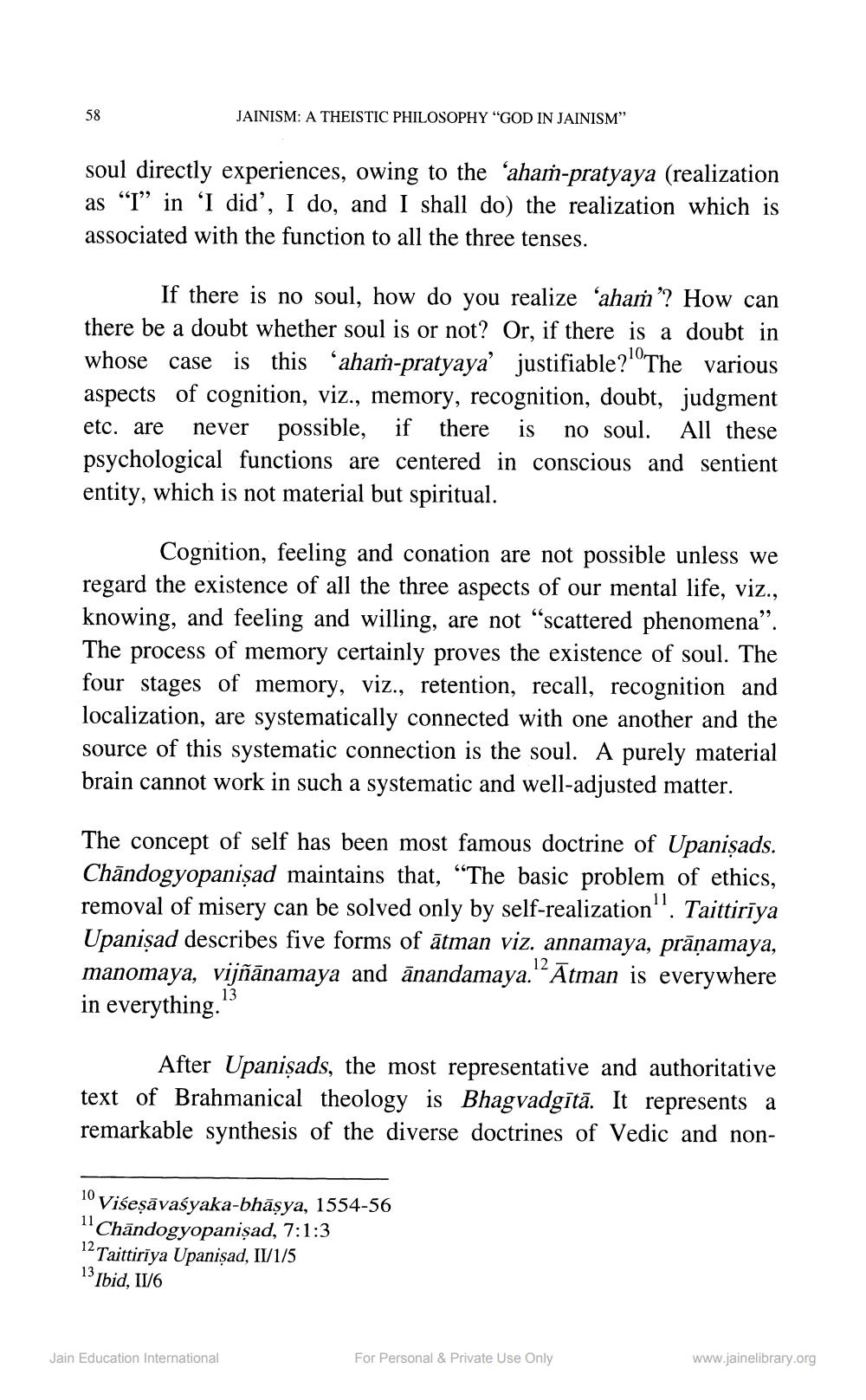________________
58
JAINISM: A THEISTIC PHILOSOPHY "GOD IN JAINISM"
soul directly experiences, owing to the 'aham-pratyaya (realization as "I" in 'I did', I do, and I shall do) the realization which is associated with the function to all the three tenses.
If there is no soul, how do you realize 'aham"? How can there be a doubt whether soul is or not? Or, if there is a doubt in whose case is this 'aham-pratyaya' justifiable?"The various aspects of cognition, viz., memory, recognition, doubt, judgment etc. are never possible, if there is no soul. All these psychological functions are centered in conscious and sentient entity, which is not material but spiritual.
Cognition, feeling and conation are not possible unless we regard the existence of all the three aspects of our mental life, viz., knowing, and feeling and willing, are not "scattered phenomena". The process of memory certainly proves the existence of soul. The four stages of memory, viz., retention, recall, recognition and localization, are systematically connected with one another and the source of this systematic connection is the soul. A purely material brain cannot work in such a systematic and well-adjusted matter.
The concept of self has been most famous doctrine of Upanisads. Chandogyopaniṣad maintains that, "The basic problem of ethics, removal of misery can be solved only by self-realization". Taittirīya Upanisad describes five forms of ātman viz. annamaya, prāṇamaya, manomaya, vijñānamaya and ānandamaya." Atman is everywhere in everything.
13
After Upanisads, the most representative and authoritative text of Brahmanical theology is Bhagvadgītā. It represents a remarkable synthesis of the diverse doctrines of Vedic and non
Jain Education International
10 Viseṣāvaśyaka-bhāṣya, 1554-56
11 Chandogyopaniṣad, 7:1:3
12 Taittiriya Upanisad, II/1/5
13
Ibid, II/6
For Personal & Private Use Only
www.jainelibrary.org




